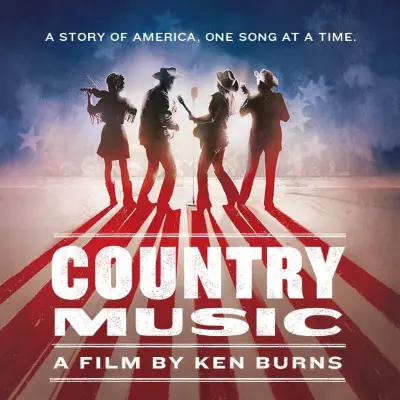Ken Burns' Country Music documentary is more interested in country myths, not its music
-

"Telling a story that runs the better part of 100 years necessitates some tough editorial decisions," says Stephen Thomas Erlewine, "but Burns seems singularly disinterested in all the gaudy elements that define a good portion of the country music business; he moves through novelty records, tacky outfits, and sticky sentimentality with the speed of lightning. During the earliest segments, when the music is still at a formative stage, this isn’t really a hindrance, but once the film reaches Hank Williams at the mid-century point, Burns’ appreciation for singular stories begins to defy what actually happened in country music during the latter half of the 20th century. He treats each era with such warped affection, he winds up with a narrative where there are no villains, only select heroes." Erlewine adds: "Burns has acknowledged that he went into the project as no big fan of country music. While this certainly isn’t required for a historian, there is a certain subdued disconnection lurking throughout the film, along with its accompanying box set and book. What Country Music does offer is a measured, effective overview of a genre that’s too often dismissed as cheap entertainment for rubes. With its tapestry of interviews and archival footage, Burns shines a spotlight upon the intelligence and soul behind country music. For neophytes and skeptics, this thoughtful telling should be enough to spark some curiosity. But for those who already know country’s wild heart, Burns falls short in telling the tale."
ALSO:
- Country Music's target audience seems to be Ken Burns fans: " His compulsion to wrap every bramble in velvet makes the series duller than it ought to be," says Carl Wilson. "Who is the target audience? I’m sure Burns would like country fans to watch, but if he really cared, there would be more 21st-century stars among the talking heads. (Dierks Bentley, for instance, appeared in the linked PBS concert special last week but doesn’t get a chance to weigh in here.) Committed country skeptics are also unlikely to give it a chance since the film tries to pretend they don’t exist. Primarily, its constituency is Ken Burns fans, who are expected to hop aboard the PBS hayride and find their anti-country prejudices purged gently along the way. If you don’t start off with anti-country prejudices, it’s a letdown that it’s so gingerly."
- What Country Music leaves out: "Let the cash register be your guide," says Malcolm Jones. "That’s surely the impulse that has almost always driven the Nashville music establishment, but it needn’t have influenced the shape of this doc so much. But so it does, and thus the insanely popular but musically uninteresting Garth Brooks gets an embarrassing amount of screen time, while Bill Monroe, one of the orneriest but greatest geniuses of all American music, just gets the occasional respectful nod. Another point that Burns only makes implicitly and I wish had explored in more depth: More than any other genre, country is the creation of radio and the record business."
- Watching Country Music is rewarding but a little daunting: "Country Music is intent on giving you a full history in both the chronological and sociopolitical respects, and the result, in time-honored Ken Burns fashion, is overwhelming by design."
- The story of country music is too vast for even Ken Burns to tell in 16 hours
- Peter Coyote on being Ken Burns' go-to narrator: "He said that he’s going to keep me busy into my late 90s"
TOPICS: Country Music, Ken Burns, Peter Coyote, Country Music, Documentaries
More Country Music on Primetimer:
